The White Rim FKT – a first known time for para-athlete mountain biking
Josie Fouts' trailblazing FKT mission isn’t just focused on introducing mountain biking to the Paralympics, but on proper representation of para-athletes in the bike industry
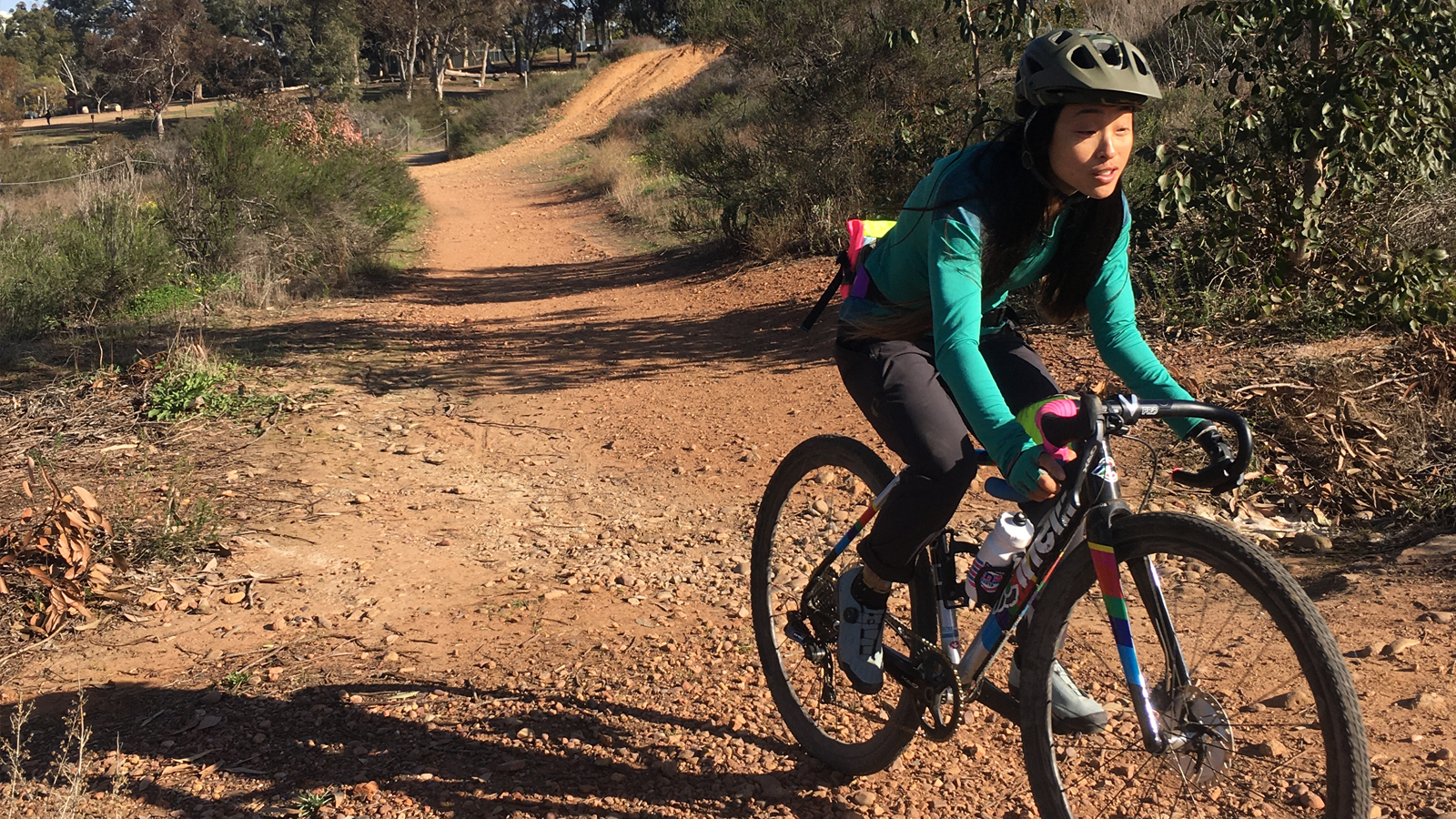
“Look at us, look at the people who are riding the bikes and helping create this new path into an inclusive world.”
There is no denying Josie is passionate about getting more people into mountain biking. Fizzing with excitement, Josie starts the interview talking about her path to open up opportunities for para-athletes, as well as other marginalized groups. She is fired up at the adventure on the White Rim that she will be shortly embarking on.
“This FKT is not even an attempt. It's setting the bar, it's the first known time. I want the FKT acronym to catch people's ears and eyes to be more interested in checking out this project. But it's the first and I think that's the important thing.”
To tackle such a challenge is a massive undertaking, the White Rim has been the stage for some heated fastest known time (or FKT) battles recently. The 100-mile loop is arid and unforgiving and wiggles its way through the Canyonlands National Park, Utah. Josie is focused on completing the route and although it will technically be an FKT, the numbers aren’t important. For Josie, the process of showing the world what is possible for para and marginalized athletes is far more important than whatever the stopwatch says at the end.
Josie’s White Rim FKT will be documented in the hope of showcasing what para-athletes are capable of with the hope of inspiring others to try mountain biking.
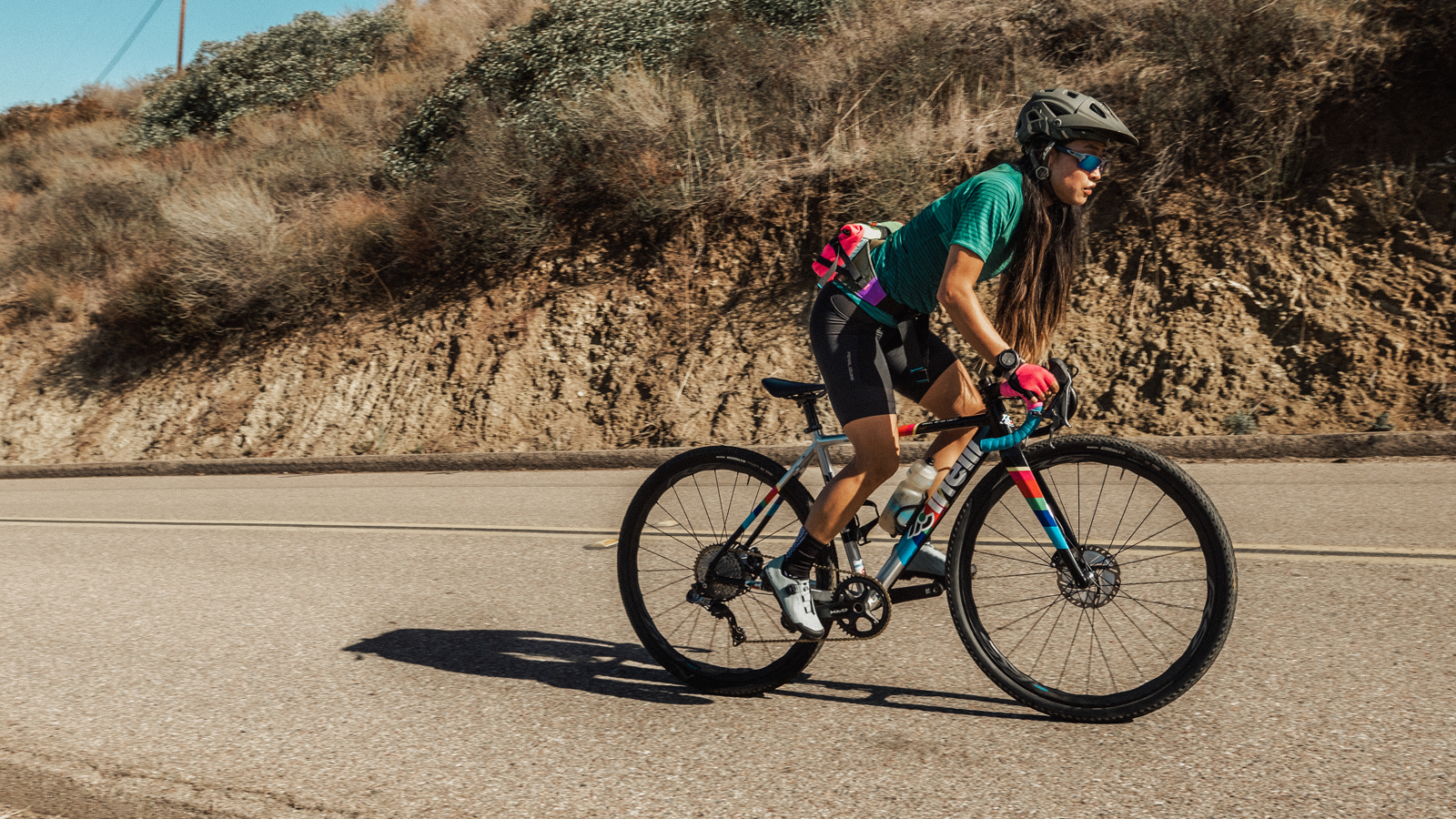
From tarmac to trail blazing
Josie started her cycling journey by commuting to and from work, she quickly moved towards competitive cycling and quit her job in 2018 to train full-time for Tokyo. While this initially brought success, notably winning gold at the U.S. National Championships. However, the focus and desire for competing on the road weren’t to last long.
“It just didn’t work out for me. It has to be fun. And to be honest, I was very stressed out throughout the whole process. It seemed to me I was making sacrifices and I didn't want to do that anymore. It created like an atmosphere where it [training] felt like I had to work a lot harder to do so.”
The postponement of the 2020 Tokyo Paralympics released the pressure and with some encouragement from her friends, Josie decided to give mountain biking a try. Although initially apprehensive the experience was a revelation.
Josie first visited the White Rim on a five-week road trip that went through Moab in 2020. As soon as she saw the snaking trail through the rugged Canyonlands she knew she had to ride it.
“In the beginning, I rode my road bike in the National Park. It's just a paved road but then you get to the end of the outback and you can stop and look at the canyon in Canyonlands and it's just beautiful. It's so big and it makes you feel so small, which makes your problems seem to go away. I think that's why being outside is really powerful, especially for people who are minorities and oppressed because all that oppression and those social troubles disappear."
Josie returned to Moab on the same trip and got to ride some sections of the White Rim. The experience confirmed that this was the right route for her FKT, not just because of her personal connection to the route, but the parallels drawn from the beauty of the environment that result from the land's imperfections.
“You can see the canyon as an imperfection and without this giant imperfection this land wouldn't be Canyonlands, it would just be land … but because of this giant crevasse that seems like an imperfection it creates this beauty that is so powerful and I think that right there is why I'm going to Canyonlands.
“I've watched these other videos that pros have done for the White Rim trail and, whether they get the FKT title or not, their regret is they didn't stop and enjoy the views. And this being the first para FKT means that anytime is the fastest so we have this opportunity to stop and enjoy the views. And that's what life is about, it's about the journey, not the destination and I want to share that with as many people as possible.”
While Josie will be the rider in the limelight, she is keen to emphasize that this attempt isn't just about her, but all para-athletes. On her FKT she will lead a group of five para-athletes who will ride and film the journey.
“Best case scenario, we f**king change the world and we make it more inclusive. We show that bicycles are an answer for a lot of our problems.
“And worst case scenario, I ride my bike with my friends outside in a pretty cool place. And with that perspective, there's no losing. And that's why I decided to go down this path versus training for Paris. With all the sacrifices that I have to make to do that because I'm on somebody else's schedule, it's not worth it. I'm done missing birthdays, I'm done missing weddings. I need to be there for the people who have been there for me this whole time”
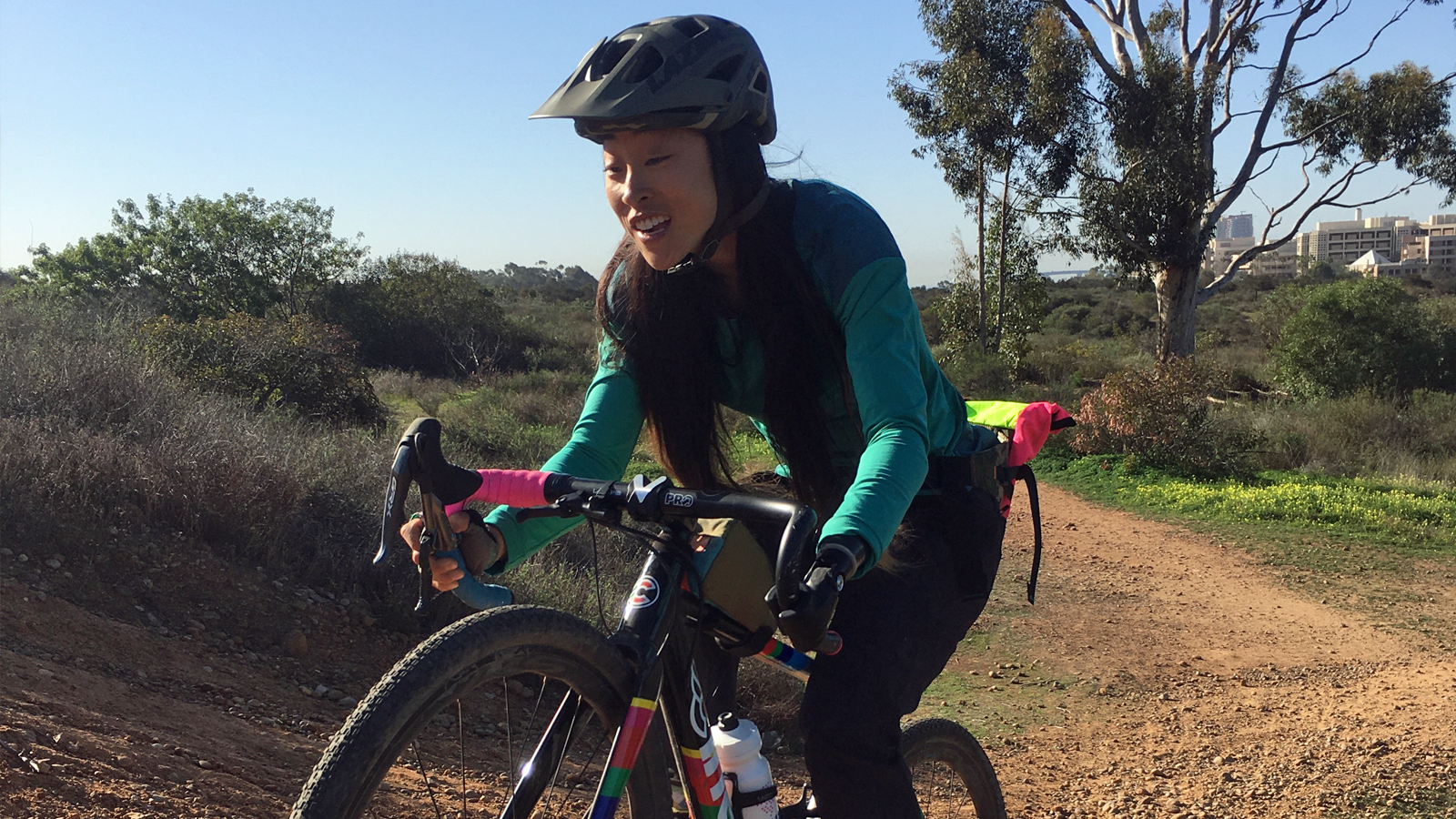
Changing perspectives
The move to mountain biking has had a dramatic effect not only on Josie’s relationship with cycling but her approach to life. Mountain biking might have taught Josie how to maneuver trails, but it has also changed her focus on advocacy as well.
“Riding really difficult terrain has helped me figure out how to overcome barriers and obstacles or go around them. Some of them, you don't have to break down. Some of them, you just go around, you know, you can't really go over a tree, but you can go over the roots. So when there's a tree in the middle, you just go around it.”
It's not simply giving riders who have disabilities or barriers the support and inspiration to ride, although that's a huge component of Josie’s advocacy, it's about changing the perspective of how the industry and cycling community views those riders. Josie sums this up perfectly,
“It's going to be about collaboration, bringing these people together and giving them a space where they feel 100 percent open and accepted. They're going to go out and do the same thing for their communities, whether it's para or not, and then those people in those communities are gonna go out and do that in their everyday life with their families and with their neighbors. They'll be able to accept the way things are and know that there is a better way for the future ... It's all about focusing on the things we do have right now and we have a bunch of athletes who love riding outside on mountain bikes. I think if we build that community, we're actually going to see a lot of pair athletes from other sports transfer into mountain biking.
Do you first clear the singletrack so only two wheels can get through? Or do you clear the multi-use path so everyone can get through? Because when you clear a path for people who need it the most, you clear a path for everyone.
Josie Fouts
“Crossing those barriers and those lines, connecting communities, and having everybody realize that we are powerful as an individual and exponentially almost limitlessly powerful together, that's how it's going to get into the Paralympics. It's all about the mindset, because I could sit here and talk about all the things that I don't have and how terrible my life is without a hand, living in a world designed with two hands. … That's not what I'm here to do, I'm here to create a narrative that can be applied to anyone. And I think that is the power of para-athletes. Because if you imagine you're on some trails, and trying to get to the top, or the bottom, or to access something, but there are some trees that are down. Do you first clear the singletrack so only two wheels can get through? Or do you clear the multi-use path so everyone can get through? Because when you clear a path for people who need it the most, you clear a path for everyone. And that's our power, that's our potential here, and we have the power to reach everyone … We need to make a message that is so clear to any person, whether they're visually impaired, audibly impaired, limb impaired, movement impaired, that there is no room for misinterpretation."
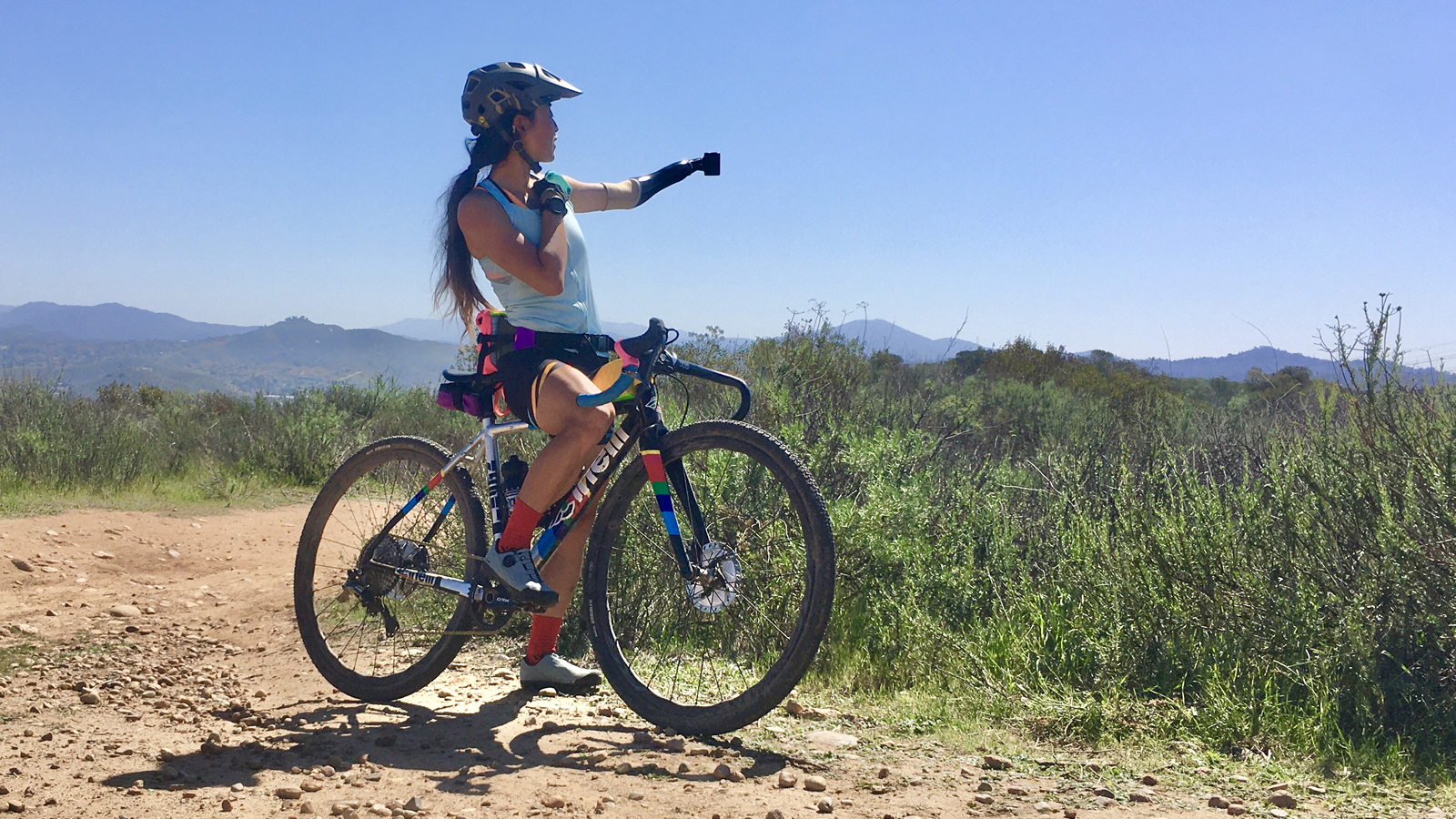
Paralympic goals
It's not just the bike industry that Josie feels is letting down para-athletes, but the lack of para-representation in competition too. There is one event in particular where para-MTB is a glaring omission.
Beyond inspiring others, Josie hopes that her activism brings with it the momentum to initiate a mountain biking category in the Paralympics. While mountain biking has been an Olympic sport since 1996, it has yet to be introduced to the Paralympics. Unlike the road and track events, mountain biking was written off as too dangerous for para-athletes, Josie wants to showcase that this mindset is far from the truth.
"When we focus on the abilities we do have, together, we can outride anything"
Josie Fouts
Although the story of Josie thriving on the White Rim trail is a piece of the puzzle, there are bigger systemic changes that need to happen to help progress para-athletics and sports. Josie highlights that there are fundamental changes to be made in the foundations of the Paralympics that would further help all para-athletes.
“I think the biggest change to make this happen is to get more para-athletes on the IPC (International Paralympic Committee) than able-bodied. That's the change that needs to happen, we need to have accurate representation at the higher levels.
"We have the Olympics and the Paralympics, and it's created a barrier. And that only happened, in my opinion, because more able-bodied people were training for the Olympics and they had the opportunity to be in charge. It's not balanced because otherwise if it was balanced with the right people, we would still be the Paralympics but the Paralympic games would run in parallel with the Olympics."
Since we spoke, Josie and her team completed the White Rim on the 5th of October despite major flood damage to sections of the trail just two days before the attempt. The White Rim ride was supported by The National Ability Center, Osseointegration Group of Australia, Outride, and Swiftwick. The video documenting Josie's ride is set to be released in Spring 2023.
As part of the team, Steven Wilkes set the first Paracycling FKT on the White Rim, completing the course self-supported with a confirmed time of 8:23:51.
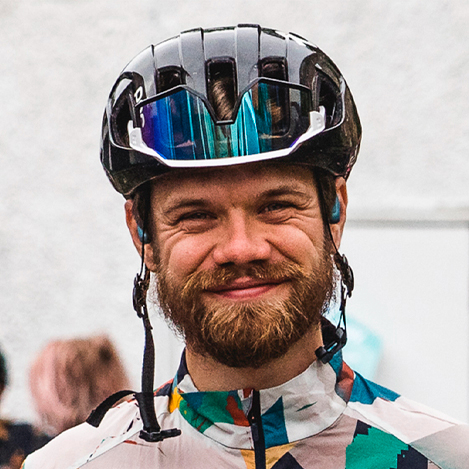
Graham Cottingham joined the BikePerfect team as our senior tech writer in 2020. With over 20 years of riding experience, he has dabbled in downhill, enduro, and gravel racing. Not afraid of a challenge, Graham has embraced bikepacking over the last few years and likes nothing more than strapping some bags to his bike and covering big miles to explore Scotland's wildernesses. When he isn’t shredding the gnar in the Tweed Valley, sleeping in bushes, or tinkering with bikes, he is writing tech reviews for BikePerfect.
Rides: Cotic SolarisMax, Stooge MK4, 24 Bicycles Le Toy 3, Surly Steamroller
Height: 177cm
Weight: 71kg
